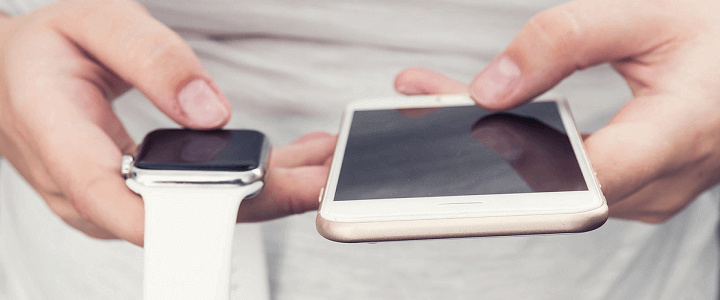The advent of the telephone-enabled Apple Watch is perhaps the culmination of every technology nerd’s fantasy. Just a decade or two ago, who besides “Inspector Gadget” could have envisioned a watch that’s also a working phone?
I’ll be the first to admit that I was (and remain) tempted to buy one. But for now at least, I’m committed to maintaining the sanctity of those few moments in life where technology does not intrude. In a very real sense, the Apple Watch strikes me as equal parts cool convenience and electronic leash.
As I recently pondered the pros and cons of my prospective purchase, it dawned on me that for cleared professionals Apple Watch actually poses some risk – and limited utility. It’s my job to forecast these types of issues for my clients, so I am perfectly content with the knowledge that this type of talk puts most normal people to sleep.
The fact is that my firm deals with a couple dozen people per year who wouldn’t be at risk of losing their security clearance, their career, and their livelihood but for one too many careless mistakes working in a SCIF. Those are preventable and often sad (single parent, sole income earner) cases, so if this article helps just one person, it was worth writing.
What’s so Sensitive About a SCIF?
SCIF’s, clearance holders know, are “Sensitive Compartmentalized Information Facilities” – special rooms equipped with a variety of highly technical counter-measures designed to prevent eavesdropping on classified discussions. The government spends a LOT of money building and maintaining them, and for good reason: they are the only place where the highest levels of classified information can be read, viewed, or discussed.
Our clients innocently do things like bring their phones into SCIF’s, introduce external media (CD’s, thumb drives, etc.), and, in one case, Skype with family members from their secure workspace. Inadvertently bringing a cellphone into a SCIF is by far the most common violation. It’s a violation because we’ve long known that foreign intelligence services can remotely turn a target’s cell phone into a covert listening device – even when the phone is not in use.
Given the ubiquity of the cell phone in today’s life – and the fact that even seasoned SCIF workers sometimes forget to leave their phone outside the door – adding telephone functionality to a watch only increases the ways in which security violations can occur.
I’m convinced that it’s only a matter of time before an Apple Watch-SCIF case comes across my desk, not to mention whatever iteration of the technology evolution is coming down the pike next. That’s not to suggest that all clearance holders should be technology-averse, but a bit of extra thought might be warranted before purchasing a wrist-worn accessory that now has the potential to wreak havoc on one’s professional life.
This article is intended as general information only and should not be construed as legal advice. Consult an attorney regarding your specific situation.




